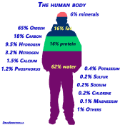Depression, The After Effect of Alcohol
Feeling depressed after drinking is common, especially for those who drink regularly.
Alcohol and depression go hand in hand, and it becomes worse the longer a person drinks. The drug has a significant impact on the mind and body.
Treating alcohol addiction with rehabilitation is the first step, and it often solves depression. Unfortunately, too many people become caught up with prescription drugs thinking it was the depression that forced them to drink.
It becomes an endless cycle of relapse, medication, and depression.
Here is why your drinking has created depression and why alcohol rehab is crucial to achieving an entirely drug-free life.
Alcohol and Depression, What Occurs
Alcohol is classified as a central nervous system depressant. Depressant, meaning it slows down brain functioning and neural activity. It does this by enhancing the effects of the neurotransmitter GABA.
Moreover, when the brain is continuously exposed to alcohol, it accommodates the effects. Alcohol increases dopamine and affects GABA and glutamine, which means your body produces less. A person drinks more alcohol to create feel-good feelings.
When a person with an alcohol problem no longer has the drug in the body, it means lower levels of essential neurochemicals. A person who stops drinking is in a depressive and anxious state. Unfortunately, the more alcohol is consumed, the more depressant effects develop.

Stages of
Addiction
Drug
Overdose

Other Reasons Why You Feel Depressed
As mentioned above, you feel depressed after drinking because alcohol alters brain chemistry, creating depression. Other reasons you feel depressed include some of the following:
- Alcohol intensifies your emotions.
- Alcohol worsens feelings of depression. Days after you have stopped drinking, feelings of depression can become worse.
- Alcohol use deprives you of quality sleep.
- Sleep is the most critical component of your well-being. Lack of sleep alone causes depression. Alcohol may help you fall asleep faster, but it disrupts your REM sleep, which means your body cannot repair and recharge.
- Alcohol use results in a cycle of unhealthy coping mechanisms.
- You’re using alcohol to manage your depression, yet it is causing more depression, which means you drink more frequently. It becomes a dangerous, unhealthy cycle.
Additionally, other contributing factors include a history of trauma or abuse, PTSD, or childhood trauma. Environmental factors also contribute to negative feelings.

Alcohol
Overdose
Understanding
Cravings

When Drinking Leads to Depression
The two primary reasons alcohol abuse lead to depression include:
- Psychosocial—When a person has a problem with alcohol, it leads to further issues in life. For example, this could include job loss, relationship troubles, financial trouble, or even legal trouble. Undesirable situations lead to negative emotions, such as depression.
- Biological—Drinking alcohol may initially cause a stimulating feeling, yet it is a depressant. It lowers the function of neurotransmitters in the central nervous system. Interference with serotonin and dopamine levels creates depressive feelings.
Overall, it is crucial to be honest with yourself and address the actual problem causing your depression. In this case, it is alcohol abuse, whether binge drinking, heavy drinking, or severe addiction.
Your depressive feelings will not alleviate until the underlying alcohol abuse is managed and treated.
Treating Alcohol Misuse to Relieve Depression
Most alcohol-dependent persons are depressed, yet too many turn to antidepressants and other medications in place of complete alcohol rehabilitation.
Research has found that identifying depression is important, yet not every depressed alcohol-dependent person requires medication, such as antidepressants.
Other studies have found a justifiable need to identify depression among alcohol-dependent patients. Yet, treat alcohol dependence as a first step and improve overall physical and mental well-being.
Your depression and depressive episodes began or became worse because of unhealthy drinking habits or alcohol addiction.
Alcohol Rehab Options to Consider
Several factors determine the type of alcohol rehab that is suitable for you, and these include:
- Current alcohol use.
- The corresponding level of physical dependence on alcohol.
- Additional substance use.
- Previous attempts to quit alcohol.
An assessment helps to determine this and what approach to take.
Rehabilitation options include the following:
- Detoxification, such as medical detox or clinical detox, depending on the severity of withdrawal symptoms.
- Residential alcohol treatment provides 24-hour rehabilitation and care and access to all the resources you require.
- Inpatient or partial hospitalization programs are generally for more severe addiction with dangerous underlying medical conditions.
- Intensive outpatient programs provide extensive treatment and rehabilitation options.
- Standard outpatient treatment centers are also effective and provide excellent aftercare support.

How to
Quit Crack
Drug Induced Psychosis

Behavioural Therapy Over Medication
Behavioural therapies have proven effective in treating substance use disorders. These approaches modify maladaptive behaviours and attitudes related to alcohol abuse. Therapies are often administered through group or individual counselling sessions.
Therapies you may experience include:
- Cognitive-behavioural therapy: Seeks to help patients better understand how to identify, avoid, and cope with situations that can lead to substance use.
- Family behaviour therapy: Therapy addresses household influences on negative substance use.
- Contingency management: This process reinforces positive behavioural change through rewards.
- Motivational enhancement: It helps individuals resolve their uncertainty about treatment and stop alcohol use.
- Twelve-step facilitation: The 12-step process is an active engagement strategy with weekly sessions and support groups.
Holistic Treatment Benefits
Holistic rehabilitation heals the whole person, mind, body, and spirit. Because it focuses on treating the whole person, it is an excellent complement to behavioural therapy.
These programs tend to operate in spa-like luxury facilities and offer a variety of therapies and treatments. Evidence-based treatment centers often incorporate holistic techniques to provide a well-rounded and balanced approach to treating alcohol misuse.
Realize Alcohol Abuse is the Cause
If this information applies to you or someone you know, realize a problem exists. Seek help—be honest with yourself and any medical professional you speak with. Millions of people struggle with alcohol addiction.
Additionally, everyone experiences depressive feelings and thoughts; it is a natural emotion in life. However, how you acknowledge those feelings determines what occurs next.
Alcohol is an easy way to cope, yet it is entirely self-defeating and destructive. The result is binge drinking or heavy alcohol use.
Whether you’re attending an alcohol rehab or in recovery, you will have days when you feel sad or depressed. Acknowledge it and focus on your sober lifestyle:
- Take care of yourself, eat well, get lots of sleep, exercise, and stay productive.
- Build a strong support network and surround yourself with positive influences and people who make you feel good about yourself.
- Develop new activities and interests, find new hobbies, volunteer, and do work that gives you a sense of meaning.
- Continue treatment if required and focus on drug-free living and healthy ways to manage negative emotions.
- Deal with stress in a healthy way while avoiding illicit or licit drugs.
Holistic Treatment Benefits
Holistic rehabilitation heals the whole person, mind, body, and spirit. Because it focuses on treating the whole person, it is an excellent complement to behavioural therapy.
These programs tend to operate in spa-like luxury facilities and offer a variety of therapies and treatments. Evidence-based treatment centers often incorporate holistic techniques to provide a well-rounded and balanced approach to treating alcohol misuse.
There is no one solution fits all for treatment and recovery. Find the rehabilitation, support, and recovery options that meet your individual needs. Drug-free living is entirely achievable.

Addiction Series
- Alcohol and Depression
- Alcohol, Dangers in Stopping
- Alcohol Overdose
- Addiction – Beginning
- Addiction Symptoms
- Drug-Induced Psychosis
- Recognizing the Signs and Responding to a Drug Overdose
- How to quit crack cocaine?
- It’s Difficult to Quit Drinking
- Stages of Addiction
- The Functional “Addict” Defined
- Understanding Cravings
- What is an Addiction?
- Alcohol and Depression
- Alcohol, Dangers in Stopping
- Alcohol Overdose
- Addiction – Beginning
- Addiction Symptoms
- Drug-Induced Psychosis
- Recognizing the Signs and Responding to a Drug Overdose
- How to quit crack cocaine?
- It’s Difficult to Quit Drinking
- Stages of Addiction
- The Functional “Addict” Defined
- Understanding Cravings
- What is an Addiction?
Find out more about us.

Susan Chubbs
Drug & Alcohol Treatment Specialist,
Referral and Consultation Counsellor
and Recovery Coach


